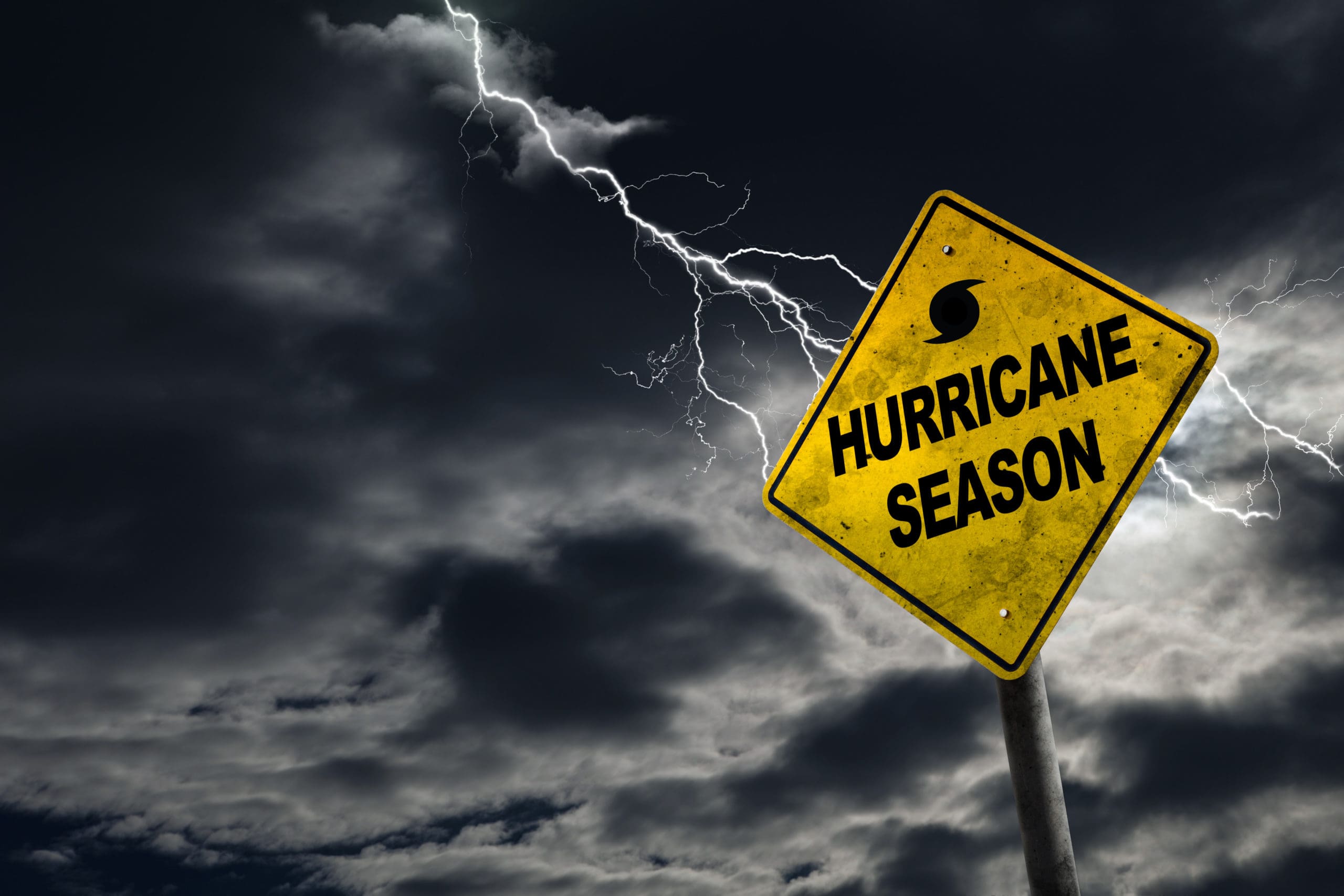Researchers from Colorado State University (CSU) are now predicting that the 2020 Atlantic hurricane season will be “extremely active.” The updated forecast is higher than CSU’s prediction in April, when the researchers said they anticipated above normal activity. The new forecast is CSU’s most dire in its 37-year history, reports Yahoo News.
CSU researchers are now forecasting nearly twice the amount of storm activity compared to normal years: 24 named storms for the 2020 Atlantic season, with 12 of them becoming hurricanes and five of those becoming major hurricanes. The average number of named storms per year is 12.1, and the average number of hurricanes per year is 6.4. The average number of major hurricanes is 2.7 per year.
Currently, the season is about two weeks ahead of record pace, and two-thirds of the season remains, reports Yahoo News. The Atlantic hurricane season runs from June 1 through November 30.
There is a 74% probability that at least one major hurricane (category 3, 4 or 5) will make landfall somewhere along the U.S. coastline and a 49% probability that one will make landfall on the U.S. East Coast, including the Florida peninsula. There is a 48% chance that a major hurricane will impact the Gulf Coast from the Florida Panhandle to Brownsville, Texas.
May 22 article:
The 2020 Atlantic hurricane season is just about to start, and the National Oceanic and Atmospheric Administration is confirming what Campus Safety reported back in April: this year’s season is expected to busier than normal.
The NOAA’s forecast, which was released on Thursday, predicts the Atlantic basin will experience 13-19 storms, six to ten hurricanes and three to six major hurricanes. Major hurricanes are defined as category 3, 4 or 5 with winds of 111 mph or higher. Average hurricane seasons produce 12 named storms per season. Six of those become hurricanes, including three major hurricanes.
NOAA says there is a 60% chance for an above-normal season, a 30% chance for a near-normal season and only a 10% of a below-normal season.
The current COVID-19 pandemic, however, could distract the country from making proper preparations for the upcoming hurricane season.
“As Americans focus their attention on a safe and healthy reopening of our country, it remains critically important that we also remember to make the necessary preparations for the upcoming hurricane season,” said Secretary of Commerce Wilbur Ross.
The Atlantic hurricane season runs from June 1 through November 30
Original April 6, 2020 article:
Colorado State University researchers forecast that the 2020 Atlantic basin hurricane season will experience above-normal activity.
The team predicts that the Atlantic basin will experience 16 named tropical storms this year. That same region usually experiences 12.1 storms. The team also forecasts the Atlantic will experience eight hurricanes (the average is 6.4 per year), 35 hurricane days (as opposed to the average of 24.2) and four major hurricanes (as opposed to 2.7).
The probability of at least one major hurricane (category 3, 4 or 5) making landfall somewhere along the continental U.S. coastline this year is 69% (the average last century was 52%). The U.S. East Coast, including Florida, has a 45% chance of experiencing a major hurricane (last century’s average was 31%). The Gulf Coast from the Florida Panhandle westward to Brownsville, Texas, has a 44% chance of experiencing a major hurricane in 2020, compared to a 30% chance last century. There is a 58% chance of at least one major hurricane tracking into the Caribbean… last century, the average was 42%.
Somewhat above normal sea surface temperatures are increasing the odds of greater hurricane activity in 2020.
The report cautioned, however, that its predictions cannot be precise this early in the year.
“Our early April statistical and statistical/dynamical hybrid models show strong evidence on nearly 40 years of data that significant improvement over a climatological forecast can be attained,” the report said. “We would never issue a seasonal hurricane forecast unless we had models developed over a long hindcast period which showed skill. We also now include probabilities of exceedance to provide a visualization of the uncertainty associated with these predictions.”
The report also did not predict where the storms will strike and reminded everyone that the chances of any particular location being hit by a major hurricane is quite small.
“The probability of landfall for any one location along the coast is very low and reflects the fact that, in any one season, most U.S. coastal areas will not feel the effects of a hurricane no matter how active the individual season is,” the report said.







